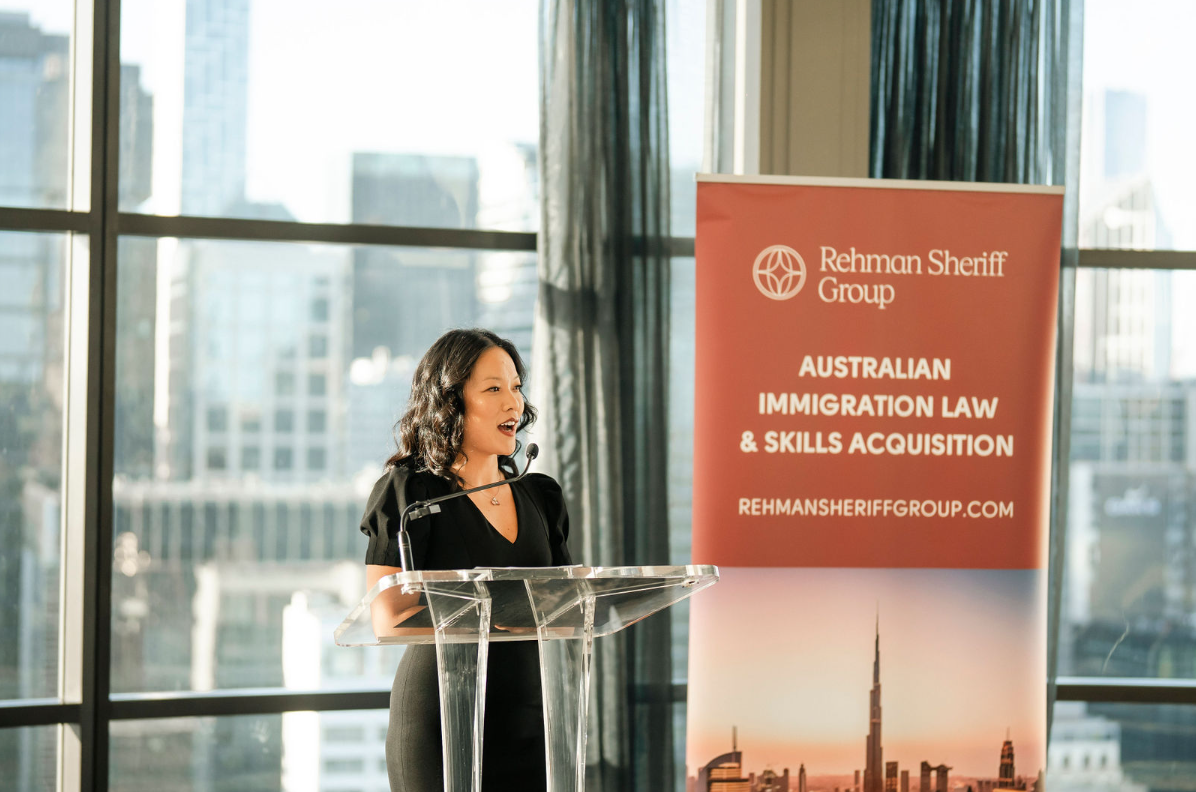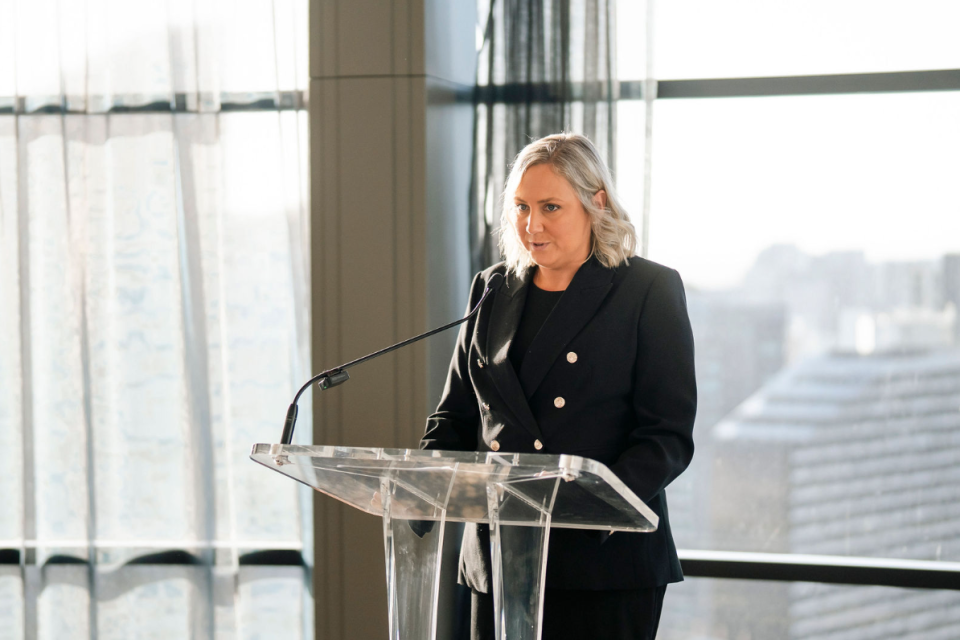
Speakers at the Rehman Sheriff Group skills event, including RSG lawyer Flora Dinh, detailed Australia’s need for a national skills acquisition vision. Photos: Rehman Sheriff Group (RSG).
It’s no secret many businesses are struggling with an ongoing skills shortage.
Construction, hospitality, health and community/personal service occupations are under duress on a national level.
So, what’s the answer?
Principal partner at Rehman Sheriff Group (RSG) Farhan Rehman says it’s time business owners consider bringing in skilled migrants to solve the problem.
“Simply put, we have enough people to fill the gaps, but they may not be qualified enough,” he says.
“Australian businesses have simply filled gaps employing as best they can for much too long. This approach is stunting our growth as a nation and without a national vision for setting this right, shortages are set to only worsen.
“But it’s up to businesses to be proactive and bring the right people here.”
Specialising in immigration law and skills acquisition, RSG recently launched its Skills program at Crown Towers, Melbourne, in front of almost 100 business owners, industry leaders and peer lawyers.
Speakers at the event detailed Australia’s need for a national skills acquisition vision and encouraged those in the private sector to pave their own way towards a stronger workforce.
“The private sector really needs to utilise programs available for skilled migration because we’re all experiencing the same issues,” Farhan says.
“It’s not just attracting workers, it’s retaining them.
“For example, I’ve seen first-hand how many hospitality workers land a job, complete their training, then leave within a month. It’s not sustainable.”





A recent report from the McKell Institute shows an average unemployment rate of 3.8 per cent over the past three years, standing out against a historical average of 6.3 per cent since 1972.
Despite this, Restaurant & Catering Australia, Master Builders Australia and the NDIS Quality and Safeguards Commission reported industry shortages of more than 100,000 skilled workers in 2023.
In the same year, the National Skills Commission found a lack of qualified nurses and personal care workers was magnified by an ageing population alongside increasing demand for aged care services.
Farhan says Australians can learn a lot from global players overseas, such as the United Arab Emirates and North American nations.
“They are working aggressively to attract people – the right people – to their country. But honestly, Australia has not been able to do this well,” he says.
“Our population is ageing and [the] working culture is far more relaxed. This all needs to change if we want to catch up with the rest of the world.”
He says RSG is the only immigration law firm in Australia that also finds skilled migrants for businesses.
Clients engage Farhan and his team to shortlist suitable applicants, vet their qualifications and experience, and guide the business through worker sponsorship/visa application processes.
“Some businesses feel hiring skilled migrant workers is too complex. Yes it can be complicated, but it’s our job to streamline the process,” Farhan says.
“Consider the Skills in Demand [SID] visa, which replaced the Temporary Skill Shortage visa in 2024 and can be used to directly attract workers with the right skills for your business.
“Once a worker has been sponsored by an Australian business for at least two years on an SID visa, they are eligible for permanent residency, meaning they’re more likely to stay employed with you long term.”
Unlike a General Skilled Migration visa, SID visas target workers for specific occupations experiencing shortage. Farhan says they’re a great way to funnel talent.
“Major cities often get first pick for high-priority workers, leaving smaller cities and regions with a smaller talent pool to choose from,” he says.
“I want to see businesses across our region have first choice, and in my opinion an SID visa is one of the best ways to do that.
“Let’s be proactive and bring the right skilled migrants from Wagga to Canberra and everywhere in between, so our regions can continue to grow.”
For more information, contact Rehman Sheriff Group.
Original article published by Morgan Kenyon on Region Riverina.








